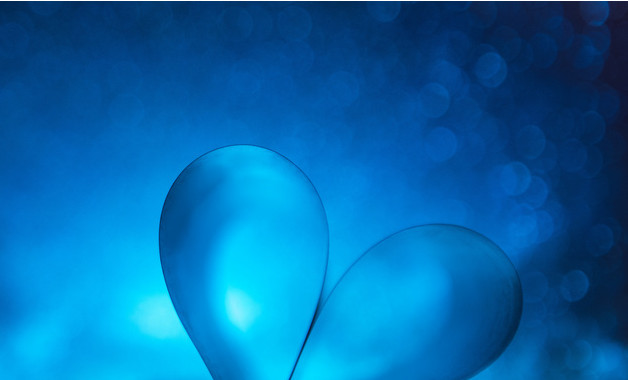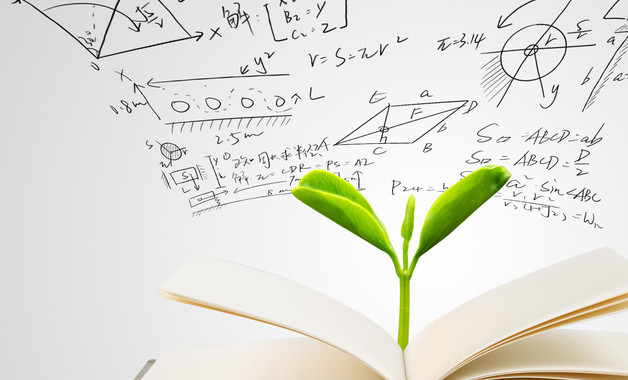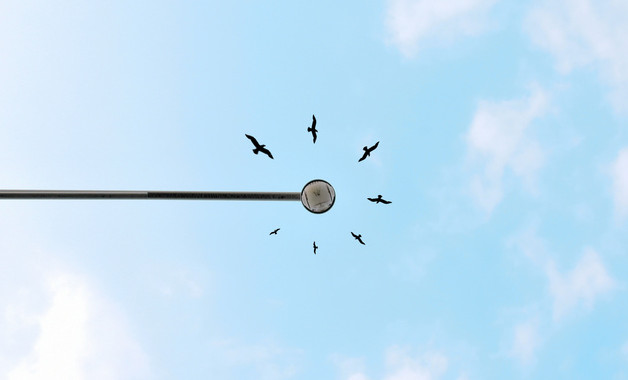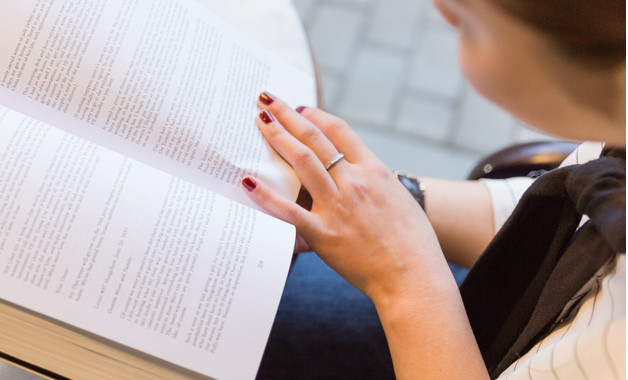
第1篇 关于"善"的演讲稿
阅读小贴士:本篇共计913个字,预计看完需要3分钟,共有108位用户收藏,15人推荐!
老师们、同学们:
今天我讲话的主题是《友善让生活更和谐》。
“友善”是人际交往中必须具备的道德规范,它无形胜似有形,如果人们都能用"与人为善"的心态去处理日常生活中各种各样的人际关系,我们的日子就会过得更加愉悦、流畅。
在熙熙攘攘的食堂里,你不小心踩了陌生同学一脚,急忙表示歉意,说了声“对不起”,而那同学却报以善意的微笑,回了句“没关系”。这就是“友善”,两个人都以友好善意的态度处理了交往中的人际关系,避免了一场可能怒目相视或许是互相指责的不必要的纠纷。
友善作为公民道德规范,其基本内容是友好、友谊、友情、善良、善意、与人为善等。社会生活是一张无形的网,人在世间难免会发生磕磕碰碰的事,会不小心踩脚,会不小心相撞,还会无意间说错话、办坏事、伤害了别人的感情,这个时候,双方都需要以友善的态度,一方要真诚地赔礼道歉,另一方要宽容、谅解别人,只有彼此都做到“以情感人”,就能“化干戈为玉帛”。
那么,在和别人打交道时,如何做到“与人为善”呢?
1、学会宽容。
大家在一条路上,生活中产生一点磨擦是正常的,俗语说,牙齿和舌头都会“打架”,更何况是富有个性思想的人呢。但是,矛盾发生后,应该具有忍耐、包容、体谅的心态,不能斤斤计较、患得患失,要把度量放宽些,眼界放远些,让矛盾迅速得以化解,这就是人们常说的“退一步海阔天空”。所以,我们应该把宽容作为生活中的润滑剂,让宽容给我们大家天天带来好心情。
2、抛弃积怨。
现实生活中,人与人之间难免产生误会,甚至怨恨,有的人心胸狭窄,无法容忍一点点误会或怨恨,耿耿于怀。其实,这些是潜留在他们内心的创伤,这种人一定活得很累、很累。我们应该善于化“敌”为友,大大方方地抛弃你对别人的一切积怨,让那些鸡毛蒜皮的小事从你的生活中随风而去。这样,你的朋友就会越来越多,你的人生道路就会越走越宽。
老师们,同学们,我们每个人都希望生活在友好、友谊、友爱的氛围中,都希望自己的周围充满善良、善举。这就需要我们每个人以友善的态度与同学相处、与老师相处、与家人相处,共同创造一个人人心情舒畅、处处温暖的和谐环境。
第2篇 关于"善"的演讲稿
阅读小贴士:本篇共计1951个字,预计看完需要5分钟,共有150位用户收藏,30人推荐!
做一个善良、有用、快乐的人(先进性教育演讲稿)
经过一段时期的学习教育,我对于“什么是党员先进性”和“怎样保持党员先进性”这两个问题有了一些自己的思考和感悟。我觉得新时期的共产党员应该是一个善良的人,一个有用的人,一个快乐的人。善良,是一个共产党人品质修养的道德基石
《三字经》开篇就讲:“人之初,性本善。”孟子说:“老吾老以及人之老,幼吾幼以及人之幼。”三国时刘备临终前叮嘱儿子“勿以善小而不为,勿以恶小而为之。”正是这些与人为善的思想和理论,教育、熏陶、感染了一代又一代华夏儿女,铸就了我们炎黄子孙的可贵品格和美德。
善良,更是共产党人不可缺少的品质修养。重庆市市长王鸿举在党员先进性教育报告会上提出过这样的要求:要做一个好党员、好干部,必须做一个有善良之心的好人。要讲良心,富于同情心,乐于助人,不整人害人,并在此基础上升华为共产党人“情为民所系”的先进性。王鸿举市长对党员干部提出的这个要求听起来似乎太普通,标准不高,然而,我觉得这个要求非常实在。
因为,只有拥有一颗善良的心,我们才能感受胡锦涛____大年三十走进贵州贫困山村与少数民族同胞过新年的那一片真情;只有拥有一颗善良的心,我们才能懂得温家宝总理在死难矿工家属面前夺眶而出的那一腔热泪。只有拥有一颗善良的心,我们才会明白为什么有那么多的人大代表、政协委员将焦灼的目光集中在“就业、住房、教育、医疗、食品安全”五大民生热点上;只有拥有一颗善良的心,我们才能真正理解舟山市委实施“暖人心,促发展”工程和建设新型农村社区决策的果敢。同样的,有了一颗善良的心,我们才会对我们的服务对象态度再热情一些、服务再周到一些,才会对我们基层学校的老师再关心一些、爱护一些,才会发自肺腑地去帮助、解决那些弱势群体的子女教育问题。
有用,是一个共产党人奉献社会的价值所在
曾经懵懂年少时,仰望历史的天空星汉璀璨,多么希望自已也能成为一颗永恒的光亮。而今年近不惑,遥不可及的英雄伟人梦早已随着岁月的流逝而消失,而自己的人生价值观也逐渐清晰,那就是:老老实实做人,勤勤恳恳干事,做一个对社会有用的人,在全心全意为人民服务的实践中实现自己的人生价值,体现党的先进性。
许久以来,在我的心中一直矗立着两座丰碑,一座是张思德,一名普通的共产党员,在烧炭时因炭窑崩塌光荣地献出了年轻的生命。张思德没有创造过惊天动地的英雄业绩,他为人憨厚老实,工作任劳任怨,从不计较个人得失,为了革命的利益默默地奉献。但是,毛泽东主席却给了他极高的评价:“张思德同志是为人民利益而死的,他的死是比泰山还要重的。”另一座丰碑就是雷锋,他短暂的一生也没有干过惊天动地的大事,也只是默默无闻地为人民做着点点滴滴的小事,但就是这种全心全意为人民服务的“雷锋精神”却激励着一代又一代的中国人,连美国的西典军校也挂着雷锋同志的巨幅画像,成为美国军人的典范。
作为教育局的一名普通公务员,几年来我一直在平凡的岗位上做着普通的工作,每到岁末年初,也实在总结不出多少成就或收获。但我觉得,只要我能够像张思德、雷锋那样,立足岗位,认真工作,把简单的事情做到不简单,把平凡的事情做到不平凡,对舟山的教育事业做出一点贡献,这何尝不是人生价值的一种体现。
快乐,是一个共产党人精彩人生的风采展示
生命的真谛,在于微笑着面对生活。让自己快乐,让别人快乐,让全人类都过上幸福快乐的生活,是我们共产党人的最高理想。
一个快乐的人,心中首先要有一份美好的憧憬。在过去战争年代,我们的革命先辈无论面对的环境怎样险恶,面临的困难多么严重,他们始终怀着革命乐观主义的精神进行顽强的战斗,因为他们坚信《国际歌》中的那句话,鲜红的太阳必将照遍全球,英特耐寻耐尔一定会实现。现在是和平建设年代,不需要我们去冲锋陷阵,血战沙场,但是全面建设小康社会,实现中华民族的伟大复兴同样让我们热血沸腾。
一个快乐的人,还要有一份宽阔的胸怀。严于律已,宽以待人。放下自己的名利,想着大家的利益,把自己的事业与大众的利益联系在一起,这样,我们就会心胸开阔,豁然开朗。就会觉得阳光原来这么温暖,空气原来这么清新,世界原来这么美好,人们原来这么可爱。
一个快乐的人,还要有一种战胜困难和挫折的方法。一个人一生中总会遇到一些挫折和失败。当我遇到挫折,感到压力,产生痛苦、无奈的情绪时,我的解脱方法很简单,也很管用,那就是背诵一遍普希金的短诗:“假如生活欺骗了你”:“假如生活欺骗了你,不要忧郁,也不要愤慨!不顺心时暂且克制自己,相信吧,快乐之日就会到来。我们的心儿憧憬着未来,现今总是令人悲哀:一切都是暂时的,转瞬既逝,而那逝去的将变为可爱。”吟咏几遍后,烦恼消逝了,就振作起来,反省自己,总结经验,改进工作,继续微笑着面对工作和生活。
“善良、有用、快乐”这三个关键词看起来很普通,但内涵却很深,我想足够让我这个普通的共产党员追求一辈子。
第3篇 关于"善"的演讲稿
阅读小贴士:本篇共计607个字,预计看完需要2分钟,共有122位用户收藏,14人推荐!
尊敬的各位老师、亲爱的同学们:
非常高兴,我们又相聚在这美好的早晨。我今天讲话的题目是:团结就是力量。
我们经常说,团结就是力量,团结协作产生凝聚力、创造力。一块砖,只有堆砌在一起才能成就万丈高楼;一滴水,只有汇入大海才能获得永存!一个人要成就事业需要团结;一个集体要在竞争中获胜也需要团结;一个国家,一个民族,只有团结起来才能昌盛发达;一个家庭只有团结和睦,才能温馨;一个校园、一个班级,只有处处盛开团结互助之花,才能成为同学们健康成长的乐园。有团结才有合作,中国神州载人飞船的成功发射和返回,震动了全世界,连西方的发达国家也不得不对中国刮目相看。这些成功的取得,如果没有数十万航天人的共同参与,如果没有科学的分工,精密的合作,就难以实现。
学会合作是现代人必备的技能。世界上有很多事情,只有通过人与人之间团结合作才能完成,如果你学会和别人团结合作,你就获得了打开成功之门的钥匙。
老师们、同学们,让我们携起手来,从现在做起,一次游戏,一次班队活动,一次卫生的打扫,一次创造发明,让我们尝试着学会与他人合作、共处,把自己培养成为一个善于团结他人、帮助他人,懂得交流和合作的人。所以我希望我们每一个人,不管是老师之间、同学之间、班与班之间,更好地协作,多一份关爱,少一份争执,让团结协作奏出美好的交响乐!祝我们第七小学的同学们,在阳光照耀下全面发展!快乐成长!不断进步!我的讲话完了,谢谢大家!
初一学生团结友善3分钟演讲稿,
第4篇 关于"善"的演讲稿
阅读小贴士:本篇共计5084个字,预计看完需要13分钟,共有225位用户收藏,18人推荐!
when i was seven years old and my sister was just five years old, we were playing on top of a bunk bed. i was two years older than my sister at the time -- i mean, i'm two years older than her now -- but at the time it meant she had to do everything that i wanted to do, and i wanted to play war. so we were up on top of our bunk beds. and on one side of the bunk bed, i had put out all of my g.i. joe soldiers and weaponry. and on the other side were all my sister's my little ponies ready for a cavalry charge.
there are differing accounts of what actually happened that afternoon, but since my sister is not here with us today, let me tell you the true story -- (laughter) -- which is my sister's a little bit on the clumsy side. somehow, without any help or push from her older brother at all, suddenly amy disappeared off of the top of the bunk bed and landed with this crash on the floor. now i nervously peered over the side of the bed to see what had befallen my fallen sister and saw that she had landed painfully on her hands and knees on all fours on the ground.
i was nervous because my parents had charged me with making sure that my sister and i played as safely and as quietly as possible. and seeing as how i had accidentally broken amy's arm just one week before ... (laughter) ... heroically pushing her out of the way of an oncoming imaginary sniper bullet, (laughter) for which i have yet to be thanked, i was trying as hard as i could -- she didn't even see it coming -- i was trying as hard as i could to be on my best behavior.
and i saw my sister's face, this wail of pain and suffering and surprise threatening to erupt from her mouth and threatening to wake my parents from the long winter's nap for which they had settled. so i did the only thing my little frantic seven year-old brain could think to do to avert this tragedy. and if you have children, you've seen this hundreds of times before. i said, 'amy, amy, wait. don't cry. don't cry. did you see how you landed? no human lands on all fours like that. amy, i think this means you're a unicorn.'
(laughter)
now that was cheating, because there was nothing in the world my sister would want more than not to be amy the hurt five year-old little sister, but amy the special unicorn. of course, this was an option that was open to her brain at no point in the past. and you could see how my poor, manipulated sister faced conflict, as her little brain attempted to devote resources to feeling the pain and suffering and surprise she just e_perienced, or contemplating her new-found identity as a unicorn. and the latter won out. instead of crying, instead of ceasing our play, instead of waking my parents, with all the negative consequences that would have ensued for me, instead a smile spread across her face and she scrambled right back up onto the bunk bed with all the grace of a baby unicorn ... (laughter) ... with one broken leg.
what we stumbled across at this tender age of just five and seven -- we had no idea at the time -- was something that was going be at the vanguard of a scientific revolution occurring two decades later in the way that we look at the human brain. what we had stumbled across is something called positive psychology, which is the reason that i'm here today and the reason that i wake up every morning.
when i first started talking about this research outside of academia, out with companies and schools, the very first thing they said to never do is to start your talk with a graph. the very first thing i want to do is start my talk with a graph. this graph looks boring, but this graph is the reason i get e_cited and wake up every morning. and this graph doesn't even mean anything; it's fake data. what we found is --
(laughter)
if i got this data back studying you here in the room, i would be thrilled, because there's very clearly a trend that's going on there, and that means that i can get published, which is all that really matters. the fact that there's one weird red dot that's up above the curve, there's one weirdo in the room -- i know who you are, i saw you earlier -- that's no problem. that's no problem, as most of you know, because i can just delete that dot. i can delete that dot because that's clearly a measurement error. and we know that's a measurement error because it's messing up my data.
so one of the very first things we teach people in economics and statistics and business and psychology courses is how, in a statistically valid way, do we eliminate the weirdos. how do we eliminate the outliers so we can find the line of best fit? which is fantastic if i'm trying to find out how many advil the average person should be taking -- two. but if i'm interested in potential, if i'm interested in your potential, or for happiness or productivity or energy or creativity, what we're doing is we're creating the cult of the average with science.
if i asked a question like, 'how fast can a child learn how to read in a classroom?' scientists change the answer to 'how fast does the average child learn how to read in that classroom?' and then we tailor the class right towards the average. now if you fall below the average on this curve, then psychologists get thrilled, because that means you're either depressed or you have a disorder, or hopefully both. we're hoping for both because our business model is, if you come into a therapy session with one problem, we want to make sure you leave knowing you have 10, so you keep coming back over and over again. we'll go back into your childhood if necessary, but eventually what we want to do is make you normal again. but normal is merely average.
and what i posit and what positive psychology posits is that if we study what is merely average, we will remain merely average. then instead of deleting those positive outliers, what i intentionally do is come into a population like this one and say, why? why is it that some of you are so high above the curve in terms of your intellectual ability, athletic ability, musical ability, creativity, energy levels, your resiliency in the face of challenge, your sense of humor? whatever it is, instead of deleting you, what i want to do is study you. because maybe we can glean information -- not just how to move people up to the average, but how we can move the entire average up in our companies and schools worldwide.
the reason this graph is important to me is, when i turn on the news, it seems like the majority of the information is not positive, in fact it's negative. most of it's about murder, corruption, diseases, natural disasters. and very quickly, my brain starts to think that's the accurate ratio of negative to positive in the world. what that's doing is creating something called the medical school syndrome -- which, if you know people who've been to medical school, during the first year of medical training, as you read through a list of all the symptoms and diseases that could happen, suddenly you realize you have all of them.
i have a brother in-law named bobo -- which is a whole other story. bobo married amy the unicorn. bobo called me on the phone from yale medical school, and bobo said, 'shawn, i have leprosy.' (laughter) which, even at yale, is e_traordinarily rare. but i had no idea how to console poor bobo because he had just gotten over an entire week of menopause.
(laughter)
see what we're finding is it's not necessarily the reality that shapes us, but the lens through which your brain views the world that shapes your reality. and if we can change the lens, not only can we change your happiness, we can change every single educational and business outcome at the same time.
when i applied to harvard, i applied on a dare. i didn't e_pect to get in, and my family had no money for college. when i got a military scholarship two weeks later, they allowed me to go. suddenly, something that wasn't even a possibility became a reality. when i went there, i assumed everyone else would see it as a privilege as well, that they'd be e_cited to be there. even if you're in a classroom full of people smarter than you, you'd be happy just to be in that classroom, which is what i felt. but what i found there is, while some people e_perience that, when i graduated after my four years and then spent the ne_t eight years living in the dorms with the students -- harvard asked me to; i wasn't that guy. (laughter) i was an officer of harvard to counsel students through the difficult four years. and what i found in my research and my teaching is that these students, no matter how happy they were with their original success of getting into the school, two weeks later their brains were focused, not on the privilege of being there, nor on their philosophy or their physics. their brain was focused on the competition, the workload, the hassles, the stresses, the complaints.
when i first went in there, i walked into the freshmen dining hall, which is where my friends from waco, te_as, which is where i grew up -- i know some of you have heard of it. when they'd come to visit me, they'd look around, they'd say, 'this freshman dining hall looks like something out of hogwart's from the movie 'harry potter,' which it does. this is hogwart's from the movie 'harry potter' and that's harvard. and when they see this, they say, 'shawn, why do you waste your time studying happiness at harvard? seriously, what does a harvard student possibly have to be unhappy about?'
embedded within that question is the key to understanding the science of happiness. because what that question assumes is that our e_ternal world is predictive of our happiness levels, when in reality, if i know everything about your e_ternal world, i can only predict 10 percent of your long-term happiness. 90 percent of your long-term happiness is predicted not by the e_ternal world, but by the way your brain processes the world. and if we change it, if we change our formula for happiness and success, what we can do is change the way that we can then affect reality. what we found is that only 25 percent of job successes are predicted by i.q. 75 percent of job successes are predicted by your optimism levels, your social support and your ability to see stress as a challenge instead of as a threat.
i talked to a boarding school up in new england, probably the most prestigious boarding school, and they said, 'we already know that. so every year, instead of just teaching our students, we also have a wellness week. and we're so e_cited. monday night we have the world's leading e_pert coming in to speak about adolescent depression. tuesday night it's school violence and bullying. wednesday night is eating disorders. thursday night is elicit drug use. and friday night we're trying to decide between risky se_ or happiness.' (laughter) i said, 'that's most people's friday nights.' (laughter) (applause) which i'm glad you liked, but they did not like that at all. silence on the phone. and into the silence, i said, 'i'd be happy to speak at your school, but just so you know, that's not a wellness week, that's a sickness week. what you've done is you've outlined all the negative things that can happen, but not talked about the positive.'
the absence of disease is not health. here's how we get to health: we need to reverse the formula for happiness and success. in the last three years, i've traveled to 45 different countries, working with schools and companies in the midst of an economic downturn. and what i found is that most companies and schools follow a formula for success, which is this: if i work harder, i'll be more successful. and if i'm more successful, then i'll be happier. that undergirds most of our parenting styles, our managing styles, the way that we motivate our behavior.
and the problem is it's scientifically broken and backwards for two reasons. first, every time your brain has a success, you just changed the goalpost of what success looked like. you got good grades, now you have to get better grades, you got into a good school and after you get into a better school, you got a good job, now you have to get a better job, you hit your sales target, we're going to change your sales target. and if happiness is on the opposite side of success, your brain never gets there. what we've done is we've pushed happiness over the cognitive horizon as a society. and that's because we think we have to be successful, then we'll be happier.
but the real problem is our brains work in the opposite order. if you can raise somebody's level of positivity in the present, then their brain e_periences what we now call a happiness advantage, which is your brain at positive performs significantly better than it does at negative, neutral or stressed. your intelligence rises, your creativity rises, your energy levels rise. in fact, what we've found is that every single business outcome improves. your brain at positive is 31 percent more productive than your brain at negative, neutral or stressed. you're 37 percent better at sales. doctors are 19 percent faster, more accurate at coming up with the correct diagnosis when positive instead of negative, neutral or stressed. which means we can reverse the formula. if we can find a way of becoming positive in the present, then our brains work even more successfully as we're able to work harder, faster and more intelligently.
what we need to be able to do is to reverse this formula so we can start to see what our brains are actually capable of. because dopamine, which floods into your system when you're positive, has two functions. not only does it make you happier, it turns on all of the learning centers in your brain allowing you to adapt to the world in a different way.
we've found that there are ways that you can train your brain to be able to become more positive. in just a two-minute span of time done for 21 days in a row, we can actually rewire your brain, allowing your brain to actually work more optimistically and more successfully. we've done these things in research now in every single company that i've worked with, getting them to write down three new things that they're grateful for for 21 days in a row, three new things each day. and at the end of that, their brain starts to retain a pattern of scanning the world, not for the negative, but for the positive first.
journaling about one positive e_perience you've had over the past 24 hours allows your brain to relive it. e_ercise teaches your brain that your behavior matters. we find that meditation allows your brain to get over the cultural adhd that we've been creating by trying to do multiple tasks at once and allows our brains to focus on the task at hand. and finally, random acts of kindness are conscious acts of kindness. we get people, when they open up their inbo_, to write one positive email praising or thanking somebody in their social support network.
and by doing these activities and by training your brain just like we train our bodies, what we've found is we can reverse the formula for happiness and success, and in doing so, not only create ripples of positivity, but create a real revolution.
thank you very much.
(applause)
第5篇 关于"善"的演讲稿
阅读小贴士:本篇共计1209个字,预计看完需要4分钟,共有296位用户收藏,29人推荐!
尊敬的各位老师,亲爱的同学们:
大家好!
众所周知,中国的文化源远流长。人类从野蛮到文明,靠文化进步;从生物的人到社会的人,靠文化教化;人们千差万别的个性、气质、情操,靠文化培养,人们的欢乐与痛苦、幸福与悲伤、崇高与卑俗、伟大与渺小等情感的表现,靠文化赋予;人们各种各样的人生观、价值观,靠文化确立。
十年树木,百年树人。欣逢盛世,时代需要的是拥有文化素养的人才。我认为,一个人,只有有了厚德做根本,有了善才做树干,有了尚文做枝叶,才是一个合格的懂文明知礼仪的文化型人才。
说到人才,人们过分强调、突出人的才干而忽略人的品行操守,忽略人的文学修养。这是一种短期行为,也是一种近视行为。
试想,一个人,天资聪颖,刻苦勤奋,极力让才干最大化,考入知名学府,曾经为家庭,为班级,为母校,挣得无限荣光。这样的人若没有厚德做根基,为社会也做不出应有的贡献。北京大学毕业的范老师,在5·12汶川大地震中,置师风师德于不顾,丢下需要安抚救助的学生,夺门而出,落荒而逃。为此,范老师获得了“范跑跑”响遍大江南北的绰号,成为笑柄,贻笑大方。
这是应试教育的后果,这是过分夸大才干而忽略品德操行的悲哀!
为避免这种畸形现象再度出现,就必须以人为核心,把人类自由全面的发展作为最高的价值目标,大力弘扬传统文化中有关理想人格和人生境界建构的精神。
传统文化的本质内涵,就是强调人与自然、人与社会、人与人、自身与美真善的和谐统一。
人与自然的和谐统一你做到了吗?每日三省吾身,今天你乱扔垃圾了吗,今天你随地吐痰了吗,今天你焚烧纸屑了吗,还有,今天你为了抄近路践踏草坪了吗?从自身做起,从点滴做起,呵护我们赖以生存的星球,我们可以幸福地生活在这个蔚蓝色的星球上,永久,永久……
人与社会的和谐统一你做到了吗?坐车时,你把座位让给年迈的老人或者怀抱孩子的母亲了吗,你看到素不相识的人陷入困境,你毫不犹豫地伸出援助之手吗,你闻听灾区遭遇重灾,你拥有悲悯情怀而慷慨解囊给予资助了吗?其实,我们只要拥有了社会责任感,只是举手之劳,就能为别人解燃眉之急了,就能帮别人接触后顾之忧了,我们何乐而不为呢?同学们,你我谱写一个爱的音符,社会就奏响和谐美好的乐章,你我播撒一个爱的水滴,社会就会汇集成一个翻卷着真善美浪花的海洋。
人与人的和谐统一你做到了吗?《论语·雍也》说:夫仁者,己欲立而立人,己欲达而达人。“仁”,既是自强不息,是以自己为起点,从我做起,也是助人有成,是人己兼顾,是对他人的尊重,是由己及人。同学们,当你理解这些语言的含义时,你还会因别人的一点小小的过失耿耿于怀而大打出手吗,你还会因事情不称心如意而出言不逊吗,还会因别人无意冒犯你的所谓的尊严而恶语相伤逞强使能吗?同学们,都知道冲动是魔鬼,都知道相互伤害没有赢家,同学们,为什么不能宽宏大度,为什么不能提高自身素质而握手言和呢?对他人有爱,你就真诚成为了一个有仁德有成就的人!
谢谢大家!
第6篇 关于"善"的演讲稿
阅读小贴士:本篇共计1890个字,预计看完需要5分钟,共有133位用户收藏,14人推荐!
只有鲜活的生命,才能在阔远的宇宙空间施展才华、实现抱负;只有健康的生命才能承担起所有的责任、为社会造福。然而,天有不测风云,生命之舟时常会遇到暴风骤雨和滔天巨浪的摧残和颠覆,使无以计数的生命之魂不得不面对一次次生离死别的严峻考验。安全――这沉重的话题,带给我们的思考确实太沉重了!
据有关资料证明,在我国的各种安全事故中,煤炭生产伤亡人数占的比重远远大于其它行业。我生在煤矿,长在矿山,那高耸的井架,猎猎的红旗,如同煤矿工人刚直的性格和坚韧的信念,给了我无限的憧憬和向往,赋予了我热爱矿山的精神;那暴怒的黑泉、断裂的岩壁狞笑着用肮脏的黑手扼杀父老兄弟魂魄,制造的呻吟和痛苦,也使我尝尽了人生太多艰涩的悲伤。
矿山,这生命的故园—让我热恋,使我悲寒。难道我们为之奋斗的这方圣土的兴衰,必然伴有兄弟肢体的残破、亲人无辜的丧失吗?我不愿意。我想,在座的每一位也不会愿意。让我们认真地思考吧!
愿望与现实是一对孪生亲姊妹,同样美好但相差万里。愿望可以不付出就得到,那是海市蜃楼般的虚无的美。现实的美却需要某种努力才能收获,这就需要有拼搏和奉献精神,正所谓“天上不会掉馅饼”。
翻开中国煤矿前进的辙印,却总有人在做“天上不会掉馅饼”的梦,并为此付出惨痛的代价:一页页翻去,满篇都是带血的文字,隐隐透出妻儿寡母嘤嘤的抽泣。那排列的竖起的鲜红的文字,像一座座人生浮雕,展现的悲壮不亚于第一次世界大战的惨烈,不逊于“三大战役”的苍痍,我们看到,那隐于黄泉路中的魂魄,用怎样的哀怨诉说满心的不甘,给我们警示。那是谁用“三违”作颜料,构涂的人间悲剧,我们也许无从考证,但那让人久久不能忘怀的凄惨景象却总也抛之不去,教人心寒。
作为济三人,都知道我们的前身是原煤炭部第三十二工程处。自1958年建处至1998年,在四十年漫漫征程中,年有事故,岁岁有哭声,这是多么不和谐的一种音符。但我们同时也看到,随着时代的变迁,先进技术的应用和矿山人安全意识的提高,安全形势越来越好,事故率越来越少,从处志中我们看到:事故率最多的一年是1965年,这一年仅轻伤就出现了423人,最少的一年是1997年,只出现3名工伤事故。沿着三十二处生命的年轮慢慢度去,它的历史折射出这样一个道理,尊重人才,尊重科学、重视安全生产,就有好的安全形势。否则,天怒人怨就形成必然。
这使我们又想到一句流行了很久的“名言”-不违章不生产。为了小集体的暂时利益,为了个人那点微不足道的收入,就出现了那麽一些“明知山有虎,偏向虎山行”的“英雄”,看阿,1999,河南平顶山韩庄矿务局二矿“8.24”特大瓦斯煤尘爆炸,死亡55人,重伤5人;__年,徐州大黄山矿“1.11”透水事故,死亡20人;__年,江苏某矿井下爆炸,死亡92人;__年杭州余杭某采矿区发生透水事件,6死10伤,……诚然,事故责任者分别受到应有的处分处理,而父母丧子之痛,妻子失夫之悲,儿女无父之苦,又岂能因此告慰。
关心中国煤炭建设的人,常读《中国煤炭报》的同志,应该记得这样一个现实:每年开采百万吨煤炭,中国平均死亡人数约10人,俄罗斯约0.66人,美国约0.038人。可见,我国煤炭生产的安全形势是多么严峻。我们应该经常地,很好的反思自己,牢记前车之鉴,莫待“亡羊”后才想到“补牢”。
近年来,集团公司把维护职工的切身利益放在首位,出台了强制性的“现场工人六项权力”及一系列规章制度,矿党政和各级组织也以坚决贯彻党的安全第一生产方针为己任,采取了切实的办法落实“安全第一方针”及“现场工人六项权力”,并使之成为条文化的管理体制。不可否认,“六项权力”在一定程度上对维护安全生产良好局面产生了积极作用,但好精念歪的现象也时有发生,并造成严重的后果,翻开公司矿井事故的档案,当不难发现其中的根由。
来自集团公司的统计表明,今年三季度,公司发生5起伤亡事故,死亡5人。5起事故,都是忽视安全生产造成的,北宿矿“7.27”盲巷窒息事故和“8.8”带电检修触电事故,均因专业人员在自己的专业内发生;兴隆庄矿的“9.1”单体柱伤人事故和我矿的“9.14”运输事故如出一辙。我并不想用这些压抑的数字再伤自己的感情,也无意使在座的同行们情感沮丧,我只想用这些带血的事实告戒今天的煤炭人和我自己,生命只有一次,不能自欺欺人的地在铺满火药的鲜花草坪上过那侥幸的生活。
如要避免“亡羊”之痛,应该怎么办?我想大家一定会告诉我,“坚持安全第一,预防为主,切不可大意麻痹,掉以轻心”。是的,意识很重要,这是一切安全工作的基础,要不断加大对安全生产方针的宣传教育力度,强化安全第一的思想意识。仅仅局限这种意识还不够,还要有科学规范的运作体系。因此,要在健全完善各项安全责任制度的基础上,注重发挥安监机构和群监网员、民兵哨兵、青年监督岗等群众组织的积极作用,强化安全管理和监督,形成纵横交织的群众安全网络,消灭安全死角。
第7篇 关于"善"的演讲稿
阅读小贴士:本篇共计398个字,预计看完需要1分钟,共有123位用户收藏,11人推荐!
所谓 “日行一善”,就是每天做一件力所能及的好事,或者随时随地做一件举手之劳的好事。
在我们班里,每天都会发生一些善良的事情。比如:上美术课,唐瑭没带彩纸,牛小新借给她。我呢,有一天没带尖的铅笔,同位借给我一支自动铅。类似这样的事情不胜枚举。
在我身边也有一位经常做好事的人,他就是我爸爸。我爸爸每天下班,都会看见一对母子。这对母子是附近收废品的,儿子今年上三年级了,跟我一样大。每天儿子放学回来后,妈妈就会在一堆废品里辅导儿子功课。他们没有专门的学习桌椅,小男孩的坐在两块砖头上,桌子是他妈妈用绳子捆起来的报纸。我的爸爸看见了,很是感慨,想给这对母子做点什么。一天,爸爸对我说:“嵩嵩,你找找有没有你不用的学习用品。我说:“嗯!”于是,我找出了一个些不用的学习用品给了爸爸,让他捎给小男孩。
爸爸做的事情或许不算什么,但我相信,在这个小男孩心里,一定会种下善良的种子。在爸爸的影响下,善良已经成为我生活中的一部分。
第8篇 关于"善"的演讲稿
阅读小贴士:本篇共计888个字,预计看完需要3分钟,共有193位用户收藏,30人推荐!
诚信做人,友善做事
我是一名中学生,从小就受过很多关于诚信的教育,岳母刺字、苏武牧羊,是对国家的忠;尾生抱柱、曾子杀猪是言而有信。中华文明历经五千年,巍然屹立,依仗就是这种诚实守信、坚贞不屈的精神。
同学们,没有诚信的人生活在世上,如同一颗漂浮在空中的尘埃,永远不会获得大家的赞美,永远不会拥有内心深处的踏实和宁静。跋涉在漫长的人生路上,谁不踏踏实实留下诚信的足印,谁将永远走不出渺小与狭隘的怪圈。 而“友善”也是人际交往中必须具备的道德规范,如果大家都能以“与人为善“的态度,去处理日常生活中各种各样的人际关系,我们的生活就会充满阳光。那么,如何做到“与人为善”呢?其一,要学会宽容。宽容就是人与人之间相处时,能充分的理解他人、体谅他人,拥有宽阔的胸怀。
同学们生活在一起,应该学会忍耐、包容、体谅,不斤斤计较,“退一步海阔天空”。其二,在平时生活中,应该学会说:“对不起”。它在在处理同学关系时有着出奇的效果。我们每个人都希望生活在友好、愉快的氛围中,都希望自己的周围充满善良、宽容和温馨„„这就需要我们每一个同学以友善的态度与同学相处、与老师相处、与家人相处,共同营造一个心情舒畅,处处温暖和谐的生活环境。同学们,让我们学会友善待人,使我们的集体变得更加美好。
考试对于我们来说并不陌生,而考试,不仅能测试同学们对所学知识的掌握程度、学习技巧、学习质量,更能测试每位同学是否做到了诚信! 如果想通过弄虚作假的方式获得暂时的小利益,不仅是对自身能力的否定和蔑视,是对学校良好风气的亵渎,更会丢掉诚信,丢掉尊严。
一个考试作弊的人,不仅仅是治学态度的问题,更是个人思想品质和人格问题。莘莘学子,诚信为本,就让我们诚实面对自己,守住内心的一份坚持,从自己做起,从现在做起,交出一份合格的诚信答卷,为学校的学风建设共同努力,为严肃考风考纪撑起一道诚信、文明、自觉、向上的美丽风景线。
因为有诚信,我们的手紧紧相牵;因为有友善,我们的心一起飞扬。同学们,努力吧!带着我们的智慧和勇气,带着我们诚信和友善的心,走向社会,走向我们美好的明天!
第9篇 关于"善"的演讲稿
阅读小贴士:本篇共计1229个字,预计看完需要4分钟,共有217位用户收藏,29人推荐!
尊敬的老师们,亲爱的同学们:
大家好!
今天我很荣幸能在我们“戴小”首届诚善文化节的开幕式上发言,在这里我要感谢老师们对我的青睐以及同学们对我的支持。今天我演讲的题目是:吸收诚善的阳光,做健康成长的少年。
入校即可见的山石上刻着你我都认识的两个字“诚善”;走廊两边是你我都能读懂的故事——它的内容诠释着诚善的至理;班级里黑板报,标语,都洋溢着你我都能感受到的诚善气息,聪明的你肯定懂了:学校苦心营造的诚善文化就是为了我们啊!而如果你还不懂这些暗示,没有关系,校训“诚善”直白地告诉我们:要做一名讲诚行善的小学生!
这些诚善文化中留给我印象最深的是《郁离子》中的一个故事:济阳的一个商人过河时船快要沉了,他看见一个渔夫就拼命呼救,并许诺:如果渔夫救了他,就给渔夫100两银子。待渔夫救上商人,商人却说没有这回事。后来商人的船又沉了,有人欲救,渔夫说出了商人赖账的事,别人愤怒于商人的言而无信,说:“世上还是少一个这样的人好一些!”便撒手不管,结果商人丢了性命。
故事结束了,一句话却回荡在我的耳边:“世上还是少一个这样的人好一些!”由此可见,言而无信在古代就是被人唾弃的恶劣品质,何况现在?因此我们要遵照我们的校训,讲诚信、做善事,要让诚善像一粒种子一样,播种在我们心田里,随着年龄的增长让它茁壮成长、枝繁叶茂。
二年级那个不懂事的我一转眼变成了六年级的少年,五年来“诚善”融入了我学习、生活的点点滴滴。在学校能够及时、认真的完成老师交代的事情;能够和同学和睦相处、互帮互助;在家中,能够做到自己的事情自己做,为父母减轻负担,同时记住父母的生日及纪念日,为父母献上一份小孝心。在社区,能够爱护社区环境、帮助需要帮助的人,为社区的建设出一份力。一直以来诚善的校训指引着我,严格规范自己的一言一行,以自己的实际行动证明:我就是一名讲诚行善的戴小学生。
一词诚善,让我懂得了真理;一个选择,让我改变了品行,一个坚持,让我看到未来。去年,我被评为戴埠小学第一届“诚善之星”。这是学校对我过去言行的肯定,更是对我今后生活的鞭策。我将继续在课堂之善、课间之善、善待同学、善待老师、善待家长、善待自然、善行社会、用餐之善、善待学习、善待作业、善待家庭这十一项的日行一善中,再接再厉,更上一层楼。
同学们,作为祖国的未来和花朵,我们应该怎么做?学校用诚善文化为我们铺了一座彩虹之桥,让我们到达胜利的彼岸。未来是光明的,我们应当向着诚善的光明奔去;花朵需要阳光,我们就应当吸收诚善的阳光,健康成长。我们可以没有金钱,可以没有荣誉,但不可以没有诚善,它是根本的做人之道,也就是我们最大的财富。我们面对诚善,应该毫不犹豫地拥有它,绝不能避开它,拒绝它。同学们,不管你以前是什么样的,从现在开始,让我们一起朝着诚善前进,吸收诚善的阳光,做品行健康成长的少年!下一届“诚善之星”说不定就是你哦!诚信友善演讲稿我的演讲完了,谢谢大家。
第10篇 关于"善"的演讲稿
阅读小贴士:本篇共计824个字,预计看完需要3分钟,共有125位用户收藏,29人推荐!
老师们、同学们:早上好!
今天我讲话的题目是《语言美,春风化雨润心田》。
说话文明,举止文雅,是中华民族的传统美德。一个人,如果能够出口成章,滔滔不绝,语重心长又能催人奋发,就不仅展示了他深厚的文化功底,更体现了他高尚的品德素养。一句温暖的话语,一个体贴的眼神,看似微不足道,实则意义深远。三国时期,诸葛亮以他的《出师表》一文,淋漓尽致地表达了他报效蜀国的赤诚之心和经天纬地的治国方略。然而,又有谁不被他文中优美的语言所感动呢?以致于它成为了中国文学史上留下的众多美文之一。二十年前,一句“小平您好!”,之所以能够传遍大江南北,深入千家万户,就在于它语言的质朴和真切,既饱含了全国人民对邓小平爷爷改革开放的肯定与拥护,也表达了特区人民对邓小平爷爷的无限崇敬和爱戴。
孔子曾说过不学礼,无以立。我国是一个有着悠久历史的文明古国,具有礼仪之邦的美称。文明礼貌并非是个人生活的小事,而是一个国家社会风尚的真实反映,是一个民族道德素质水平和精神文明程度的标志。每个人从他来到这个世界的那一刻起,就需要别人的爱抚、安慰、体谅、关怀和相互帮助,都渴望真诚友情和相互帮助。当我们快乐时,需要和别人分享,有痛苦烦恼时,需要向别人倾诉;有了困难时需要别人的帮助。同样在与人交往中,也需要宽容,虚怀若谷、容得下不同的意见,对人友爱、理解,不埋怨,不嫉恨、不猜疑。得理让人,失理道歉,真诚地与人相处,与人为善,相互尊重,相互信任。有时一声‘你好’给别人带去一天的好心情,一句‘谢谢’拉近了人们之间的距离,一声‘对不起’能化解剑拔弩张的冲突,一个‘不要紧’等于给人吹去阵阵温润的春风。同学们,让我们都行动起来吧,让“请、您好、谢谢、对不起、没关系、再见”这些成为我们的日常用语,让我们每一个人都用友好、诚恳的态度待人,用热情、大方的举止处事,给他人带来愉快和谐,让校园充满爱的温馨,让文明礼貌之花在我们的校园竞相绽放吧!

















